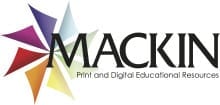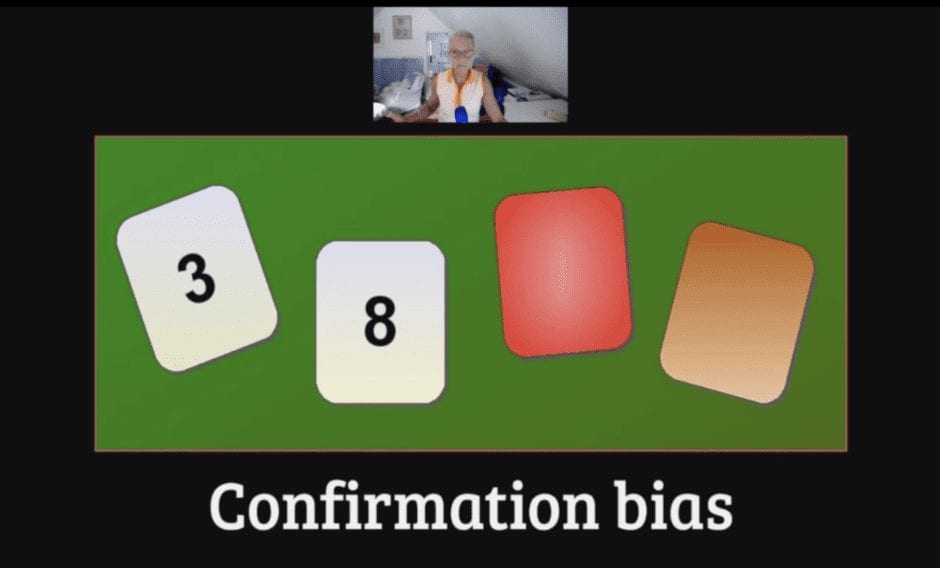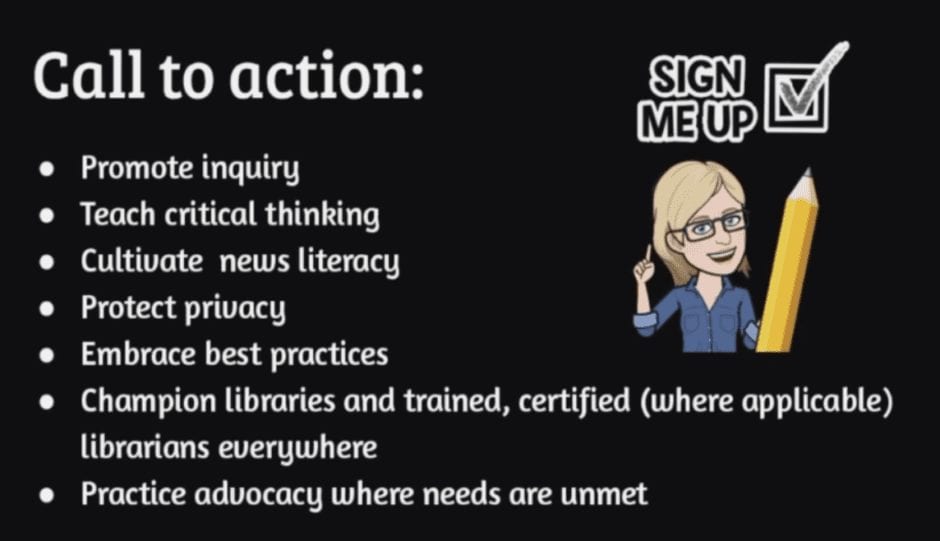School Librarians Can Save Democracy
By Eileen Belastock
Regardless of one’s political views, there seems to be consensus on one political reality: America is dangerously polarized. According to Michelle Luhtala, Library Department Chair at New Canaan High School in Connecticut, in an edWebinar sponsored by Mackin Educational Resources, “The future of democracy presents a case for the critical need for school librarians in every school.” They are valuable for students to ensure equitable access to quality inquiry instructional experiences for all learners, not just for the future of education but also for the future of democracy.
The Problem
Michelle suggests that political belief polarization may emerge because of people’s conflicting confirmation and desirability biases, which leads them to interpret new evidence as a confirmation of one’s own existing beliefs and theories. Two-thirds of U.S. adults get their news from social media, and 42% think that the news they’re getting is 100% accurate. 58% of college students get their news from social media; however, they read news differently if they’re consuming it for their recreational life than if they’re re-consuming it for their academic life. In contrast, educators observe that school-age students read the news the same way as they do for their social life for their classes. They come into the process saying, “I already know what I’m going to say, I just need to find the resources and write it.” These biases defeat the purpose of inquiry-based learning and distort interpretations of news and fact-based research.
The Solution
According to Michelle, “We have a problem or at least the perception of the problem that democracy is in jeopardy.” The internet is both the world’s best fact checker and the world’s best bias confirmer, often at the same time. So, when we see the news, we have to read it with our brain and not our hearts, and we have to teach our students to do the same. Democracy dies in darkness, so critical thinking is essential for democracy. As educators, it is incumbent upon us to teach critical thinking to even our youngest students. School librarians and classroom teachers have the responsibility to teach skills that ensure students distinguish news reporting from editorials and letters to the editor, be critical viewers of websites, and use resources ethically.
Call to Action
Critical thinking is a crucial component of democracy. It is imperative that educators promote inquiry, teach critical thinking, cultivate news literacy, protect privacy, and embrace best practices. We need to teach students to internalize the inquiry process where they’re questioning everything and being critical and rational about their consumption of news. Besides classroom teachers, school librarians have the responsibility, capacity, and training to teach inquiry-based learning. The challenge is that school librarians’ positions are being reduced or eliminated. Hence, school leaders need to understand the critical role that librarians have in ensuring that future participation in the democratic process. The internet, online learning environments, and edtech software are not replacements for highly qualified, certified school librarians. These skilled educators need to be supported, valued, and retained to ensure that democracy is saved.
This edWeb broadcast was sponsored by Mackin Educational Resources.
This article was modified and published by eSchool News.
About the Presenter
Michelle Luhtala, Library Department Chair at New Canaan High School in Connecticut, was one of five school librarians named as a “Mover and Shaker” by Library Journal in 2015. She is the winner of the 2011 “I Love My Librarian” Award and the Library Association’s 2010 Outstanding Librarian Award. The New Canaan High School Library won AASL’s National School Library Program of the year in 2010. Follow Michelle on Twitter @mluhtala.
Join the Community
Emerging Tech for Schools and Libraries is a free professional learning community on edWeb.net where school librarians, teachers, and administrators can explore all the ways to integrate technology and 21st century learning into school library programs.

Eileen Belastock, CETL is the Director of Technology and Information for Nauset Public Schools, MA, and also works with edWeb.net to write articles on their professional learning edWebinars. You can follow Eileen on Twitter @EileenBelastock.





Comments are closed.